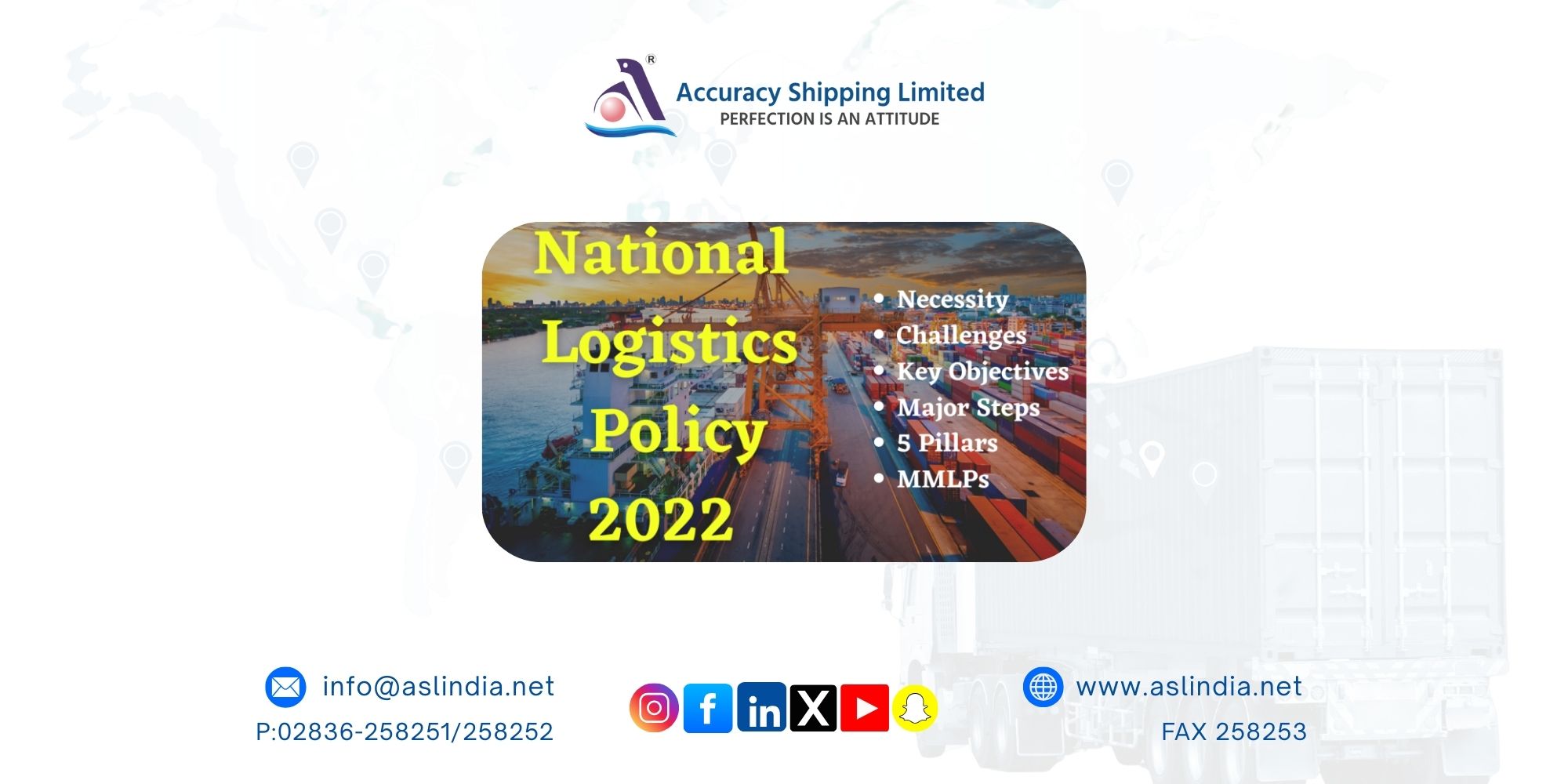National Logistics Policy turns three, paving the way for efficient & sustainable supply chains

The Department for Promotion of Industry and Internal Trade (DPIIT), Ministry of Commerce and Industry, recently marked the third anniversary of the National Logistics Policy (NLP), launched by Prime Minister Shri Narendra Modi on 17th September 2022. Over the past three years, the policy has emerged as a transformative framework for India’s logistics ecosystem, reshaping supply chains with reforms in digital integration, policy alignment, skill development, and infrastructure planning. These initiatives are steadily reducing logistics costs, strengthening efficiency, and enhancing India’s competitiveness in global trade.
Driving Efficiency Through Policy Alignment
Aligned with the PM GatiShakti National Master Plan, the NLP emphasizes digitization, soft infrastructure, human resource development, and regulatory reforms. Its core objectives are:
Reducing logistics costs to global benchmarks
Improving India’s World Bank Logistics Performance Index (LPI) ranking to the top 25 by 2030
Establishing a data-driven logistics decision support system
Progress is already visible. India has climbed to 38th position in the LPI, supported by tools such as the Unified Logistics Interface Platform (ULIP), which has facilitated over 160 crore digital transactions through API integration across 30+ systems. Meanwhile, the Logistics Data Bank has tracked more than 75 million EXIM containers, significantly improving visibility and efficiency.
Innovation, Sustainability, and Recognition
The LEADS index continues to assess state-level logistics performance, now expanding to cover digital logistics and sustainability metrics. Complementing this, the LEAPS initiative recognizes innovations from MSMEs, startups, and academia, particularly in green logistics and ESG practices.
Sustainability efforts have been reinforced through the Transportation Emissions Measurement Tool (TEMT), developed by IIM Bangalore and aligned with ISO 14083 standards. This initiative is helping companies monitor and manage their carbon footprint more effectively.
Skill Development & Capacity Building
Human capital is central to NLP’s vision. Progress in this area includes:
Over 100 universities offering logistics-focused programs
65,000 professionals trained between 2023–2025
New UG and PG logistics programs launched through GatiShakti Vishwavidyalaya
250+ workshops and digital training modules hosted via the iGoT platform
This focus on skills ensures that India is building a workforce equipped to meet the demands of a rapidly evolving logistics sector.
Sectoral & Regional Progress
The Sectoral Policy for Efficient Logistics (SPEL) is rolling out targeted plans for industries such as coal, cement, steel, fertilizer, and food processing, aiming to strengthen resilient and multimodal supply chains.
At the regional level, the progress is equally noteworthy:
27 States/UTs have formulated their own logistics policies
14 States have prepared logistics action plans
19 States have granted industry status to logistics, unlocking tax benefits and incentives
Challenges Ahead
Despite remarkable progress, challenges remain. Infrastructure gaps, regulatory harmonization, and digital adoption among smaller operators continue to slow transformation. To overcome these hurdles, DPIIT stresses the importance of coordination among States, Union Territories, and Central Ministries to achieve seamless multimodal integration.
Looking Ahead
With the ‘Whole of Government’ approach under PM GatiShakti, supported by strong public-private partnerships, stakeholder engagement, and innovative financing models, the NLP is laying the foundation for a future-ready, sustainable, and globally competitive logistics ecosystem.
As the National Logistics Policy enters its fourth year, it stands as a pivotal enabler for India’s ambition to become a global logistics powerhouse.







